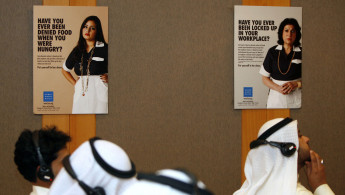Kuwait's domestic workers win minimum wage and rights deal
Kuwait's national assembly has approved two new bills regulating the employment of domestic workers.
It has also agreed to the foundation of two closed joint stock companies for their recruitment, and the establishment of a national human rights commission.
The first bill calls for proper legislation to protect domestic workers' rights, said the parliamentary Financial and Economic Affairs Committee. The second aims to legalise the recruitment of foreign domestic workers, and define the conditions in their contracts.
"The proposal is likely to help promote Kuwait's status with the concerned international labour organisations that have requested amending the present system, to safeguard workers' rights," said the Kuwait news agency.
| There are 2.4 million migrant domestic workers employed in GCC states, it has been estimated. |
The second and final vote for the law is to take place this week.
The decision was announced immediately after the International Day for Domestic Workers on 16 June - four years after the International Labour Organisation adopted Convention 189 on Decent Work for Domestic Workers.
The new laws give domestic helpers the right to receive a minimum wage of 45KD ($150) a month, and limit working hours to eight hours a day. They also include a weekend off and 30 days holiday a year, as well as the right to be paid overtime, reported The Kuwait Times.
Domestic workers should be aged between 20 and 50 and receive a month's pay for each year of service on termination of their contract, the paper added.
A law has also been passed to set up a shareholding company for recruiting domestic workers that replaces the private companies that currently recruit domestic helpers.
It is hoped this will stop the increasing cost of recruitment, and end accusations that recruitment agents have been abandoning domestic workers in private households.
The assembly also passed a law to set up a human rights commission formed as an independent human rights body but under the umbrella of the council of ministers.
"All people are equal in human dignity, and in public rights and duties before the law, without distinction as trace, origin, language or religion," states the Kuwaiti constitution.
It is estimated that there are 2.4 million migrant domestic workers employed in GCC states, mainly from Asia and Africa.
Kuwait has the highest proportion per household in the GCC, with nearly 90 percent of Kuwaiti households employing a foreign domestic worker.
One woman from Sierra Leone said that, after being chosen by a Kuwaiti family she was taken to their house and treated "like a slave", reported The Guardian in April 2015.
"You have to work 24 hours [with] no day off. You can never leave the house, she said. "You are not allowed to use mobile phones. These people are not good."



